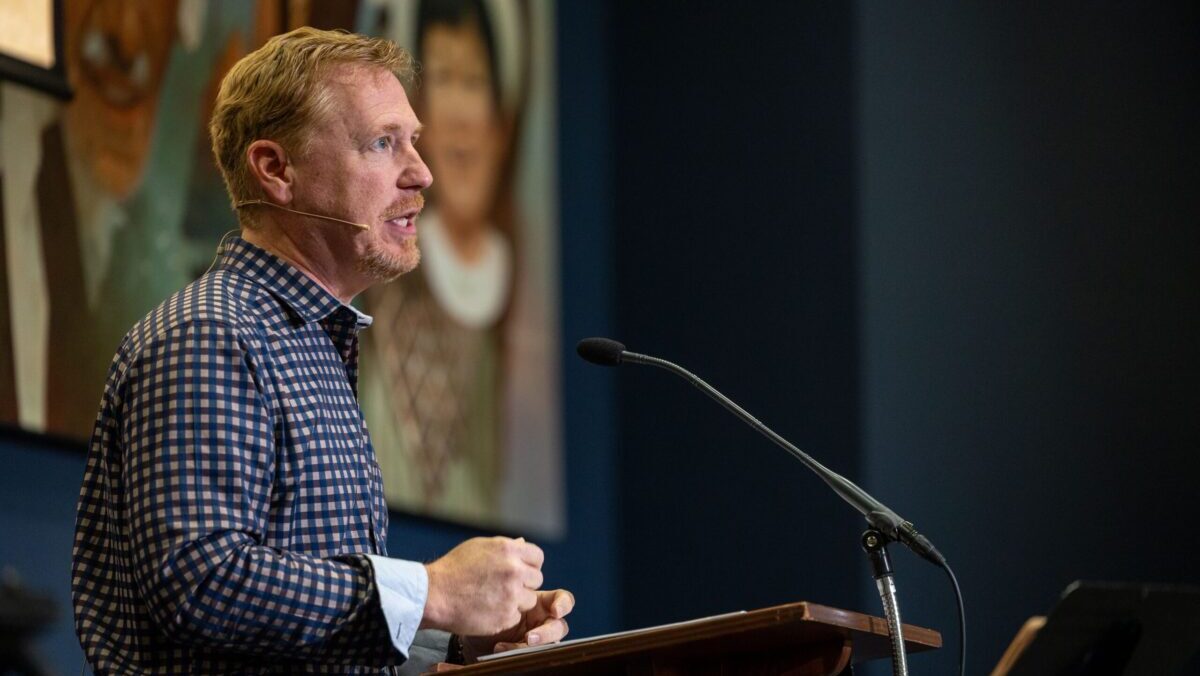Latif, an Afghan Muslim man on his sixth pilgrimage to Mecca, wondered why God was mad at him.
He was a devoted follower of Islam and repented of his sin. So why didn’t he feel peace?
“Why are you so far away from me?” he asked God.
The next day, though crying and fighting with God, Salar continued on his journey. A strange man approached him and asked where he came from.
Latif was confused and upset. His shaved head and clothes obviously indicated he was on a pilgrimage.
Life-changing encounter
The man shared his salvation testimony with Latif, prayed for him and gave him an Arabic New Testament. The prayer touched Latif. It was like this man knew his struggle.
Back in Afghanistan in 2007, Latif and his best friend began to study the Bible every day, but not to become Christians. Instead, they compared the Bible and the Quran.
“We studied to find out which part they changed,” he said.
Although Latif wasn’t a Christian, his friend turned him in to the police, who found his Bible and beat him to the point of death because they thought he was a Christian.
Upset at being falsely accused and angry at Christians, Latif fled to India. On Christmas Day, he attended church and slapped the pastor.
“Latif, we love you. God loves you,” the pastor told him.
The next day, the pastor bought Latif food, clothes and shoes. He also prayed for Latif. Yet again, he found himself asking “Why?”
“Why is this man doing that?” he wondered.
Through contact with Christians and the work of the Holy Spirit, Latif received Christ in India in 2008 “Jesus, from tonight, from this moment, you are my Lord and Savior,” he prayed.
And on that night, everything changed for him.
Active ministry
In 2010, Latif started a church in India. He didn’t know anything about planting churches, but he modeled his after the church in the Book of Acts.
The church started meeting in his home and at the park. Throughout the week, small groups of two or three families would meet. On Sunday, people would share how they had reached other people and what they were learning from the Bible.
“And that way we grow,” he said. “We started just from the book of Acts.”
Eventually, the church grew to 70 people.
In 2012, Latif moved to Indonesia where he started another home church. They baptized 62 people from Iran and Afghanistan.
He moved to Australia in 2015, where one house church he started has since grown to three in Sydney.
In 2017, Latif met Mark Morris, founder of Refugee Memphis, at a conference in Tulsa, Oklahoma. Morris asked him to pray about starting an Afghan church in Memphis, Tennessee.
Launching a church in Memphis
Latif and his wife began to pray and felt peace to come to Memphis, and in 2020, the first Afghan church in Tennessee was started.
Culturally, Latif’s churches are very different from traditional American churches. They meet in homes, and the families bring food and eat and share together.
Afghan refugees sometimes don’t feel safe or comfortable in a traditional American church, he said.
Morris noted, “What we have to recognize is that their church is not going to look like our churches, but it’s going to be a New Testament church.”
In Memphis, there are around 75 Afghan families, most of them newly arrived refugees. Latif is in contact with most of them.
“We have a friendship. We invite them to our home. They invite us to celebrations. We share together,” he said.
Open hearts
People that rejected the gospel two years ago are now really open, he said.
Twice a week, Latif broadcasts a gospel program to the global Afghan community. The program streams on Facebook, YouTube and satellite television.
Latif gets calls from people in Afghanistan, Iran, Tajikistan and Europe who want to know about Christ. Some of the callers can only talk for 10 minutes out of fear of the Taliban.
But the gospel is still spreading. In the last two months in Kabul, seven families have been baptized, he said.
How to pray
Latif asks Baptists to pray for spiritual growth for the believers in his church.
He gives new believers the responsibility to read the Bible, to share with others and to report what they share. The busyness of American culture means Bible study isn’t often a focus.
He also asked prayer for a retreat for Afghan believers at Linden Valley Baptist Conference Center next year. He is expecting 150 Afghan believers.
Latif’s church plant and broadcast ministry is an example of how the nations can be reached right from Tennessee. The Golden Offering for Tennessee Missions gives Tennessee Baptists the opportunity to partner with church plants like Latif’s in reaching the farthest corners of the Earth.
“Jesus is too real to me and to everyone who receives Christ. His Scripture is true,” he said. “The word of God is true. Why should I not share this?” Latif said.
EDITOR’S NOTE — This story was Ashley Perham and originally published by Baptist and Reflector.








